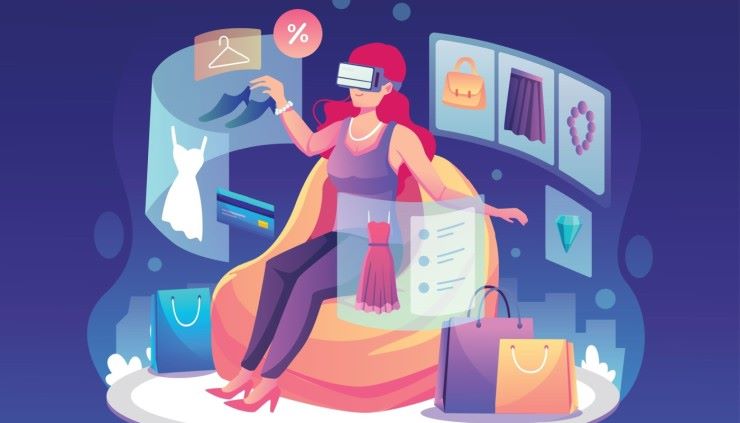Marketing in the Metaverse – A New Dimension
The metaverse has been catching on as a buzzword in recent years. It represents a virtual world that is interconnected with the physical, where people can interact with each other, create and consume content, and participate in various activities. As technology continues to evolve, the metaverse is increasingly becoming a viable platform for marketers to engage with their audience in new and exciting ways. However, there are also some challenges to consider. In this article, we will explore the opportunities and challenges of using the metaverse in marketing.
Opportunities of the Metaverse in Marketing
- 1. Virtual Events: The metaverse provides a platform for hosting virtual events that can be accessed from anywhere in the world. Brands can use this platform to host product launches, conferences, and other digitalized events. Virtual events can be more cost-effective than traditional events, and these can also reach a wider audience.
- 2. Personalized Experiences: Personalization is the key to successful marketing. The metaverse provides the perfect platform for brands to do so. Brands can create virtual environments that reflect their values and allow users to interact with their products and services in unique ways.
- 3. Augmented Reality (AR): The metaverse allows for the integration of AR technology, which can be used to enhance the user experience. Through AR, brands can provide more information about their products or services; create interactive experiences; and facilitate user engagement.
- 4. Advertising: The metaverse can help brands create traditional advertisements in new and unique ways. Brands can develop virtual billboards or sponsor digital events to increase brand visibility. Due to the potential of collecting immense amounts of data via the metaverse, brands will be able to conduct targeted advertising based on user behavior and interests.
- 5. Gamification: The metaverse provides an opportunity for brands to gamify their marketing efforts. Brands can create games that allow users to interact with their products and services in a fun and engaging way. Gamification can increase brand awareness and customer engagement.
Challenges of the Metaverse in Marketing
As with all new-age digital innovations, the metaverse has its issues.
- • Infrastructure The metaverse is still in its early stages, and there are some infrastructure challenges that need to be addressed. For example, better connectivity and faster internet speeds are essential to ensure a smooth user experience.
- • Standardization: The metaverse is still a fragmented ecosystem, with different platforms and protocols. This can create challenges for brands that want to reach a wider audience across different platforms and have a standard strategy.
- • Privacy and Security: The metaverse raises concerns about privacy and security. Brands need to ensure that user data is protected, and their virtual environments are secure.
- • User Experience: While the metaverse will be easy to use for the digital natives, it will be a new and complex platform for the older generation. Brands will need to ensure that their virtual environments are user-friendly and easy to navigate.
- • Cost: The metaverse can be costly to develop and maintain, which can create challenges for smaller brands with limited budgets.
Examples of Brands Implementing the Metaverse for Marketing
- 1. Nike – In 2021, the footwear manufacturer launched a virtual sneaker collection in the metaverse. The collection was only available for purchase using cryptocurrency, and could be worn in various virtual reality environments.
- 2. Gucci – In 2020, the luxury apparel brand launched its virtual exhibition, Gucci Garden Archetypes, in Roblox, featuring virtual rooms and installations inspired by the brand's collections.
- 3. Louis Vuitton – In 2019, this high-end fashion brand partnered with League of Legends to create in-game outfits and a virtual trophy case for the game's World Championship.
- 4. Coca-Cola – In 2018, the beverage giant launched a virtual reality experience at the FIFA World Cup in Russia, allowing fans to experience the tournament from a different perspective.
Brands Planning to Enter This Space in Future
- 1. Mercedes-Benz – In January 2022, the luxury car giant announced its plans to launch a showroom in the metaverse, allowing customers to explore and customize their cars in a virtual environment.
- 2. McDonald's – In December 2021, the fast-food giant announced its plans to launch a virtual restaurant in the metaverse for customers to order and enjoy their food in a virtual setting.
- 3. The North Face – In 2018, this popular sportswear firm created a virtual reality experience that allows customers to explore the Yosemite National Park. The brand has since announced its plans to expand its presence in the metaverse.
Conclusion
The metaverse is an exciting new platform for marketers to engage with their audience in new and unique ways. However, challenges in the smooth operation of this virtual world need to be addressed effectively. As the metaverse continues to evolve, brands need to stay informed and adapt their marketing strategies to wow their prospects. By leveraging the opportunities and addressing the challenges, brands can use the metaverse to create engaging and personalized experiences for their audience.
